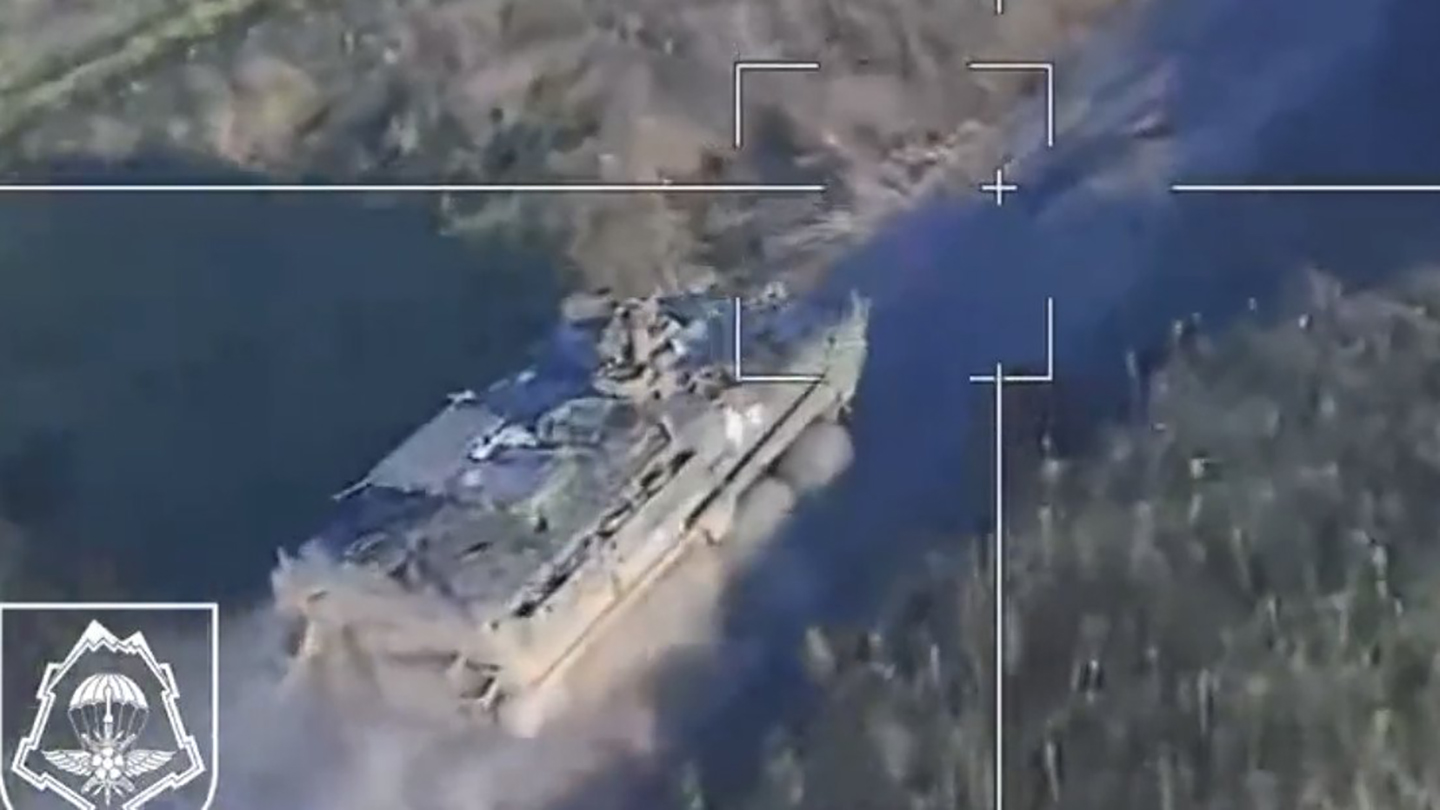What appears to be the first combat-related video of a U.S.-donated Stryker Armored Vehicle in Ukraine has emerged on social media. The Strykers have been puzzlingly absent from media coming from the front since the counteroffensive began, with some positing they were being held in reserve for a larger thrust.
The 28-second video, originally posted by the Russian ZA_FROHT Telegram channel Tuesday, is apparently a Russian drone’s view of the vehicle hauling down a roadway. ZA_FROHT says the video shows “the combat work of the Osman army special forces unit to destroy the Stryker…with the Lancet loitering ammunition in the Zaporizhzhia direction.”
At about the 22-second mark, the Lancet drone comes into view from the bottom of the screen, hitting the Stryker (or very near) its right rear side about two seconds later.
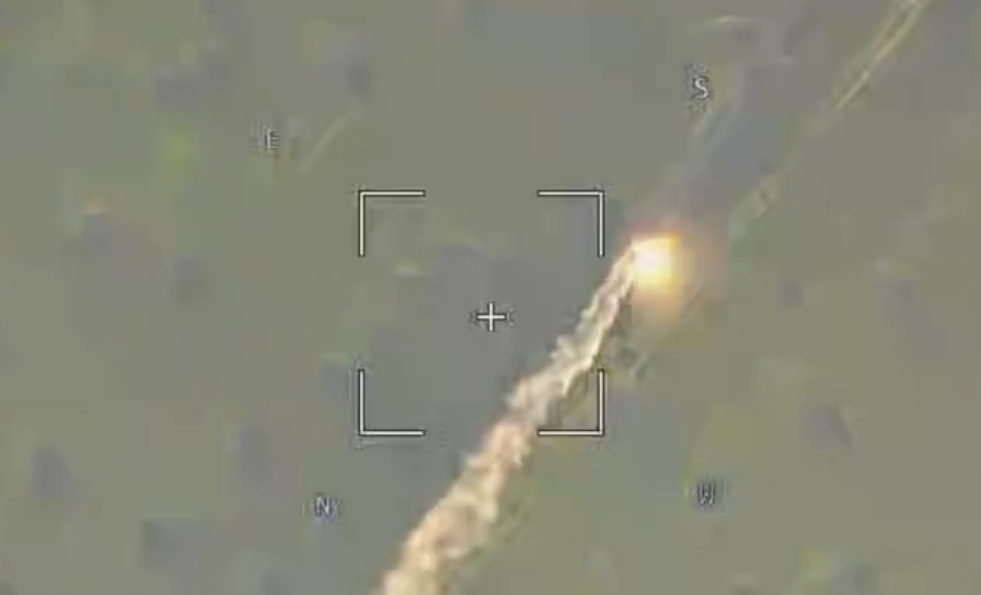
It is unclear how badly the vehicle was damaged, if at all. The video shows that about a second after the Stryker was hit, it kept moving down the road before the video cut off. Two experts we contacted offered divergent opinions about its fate after seeing the video.
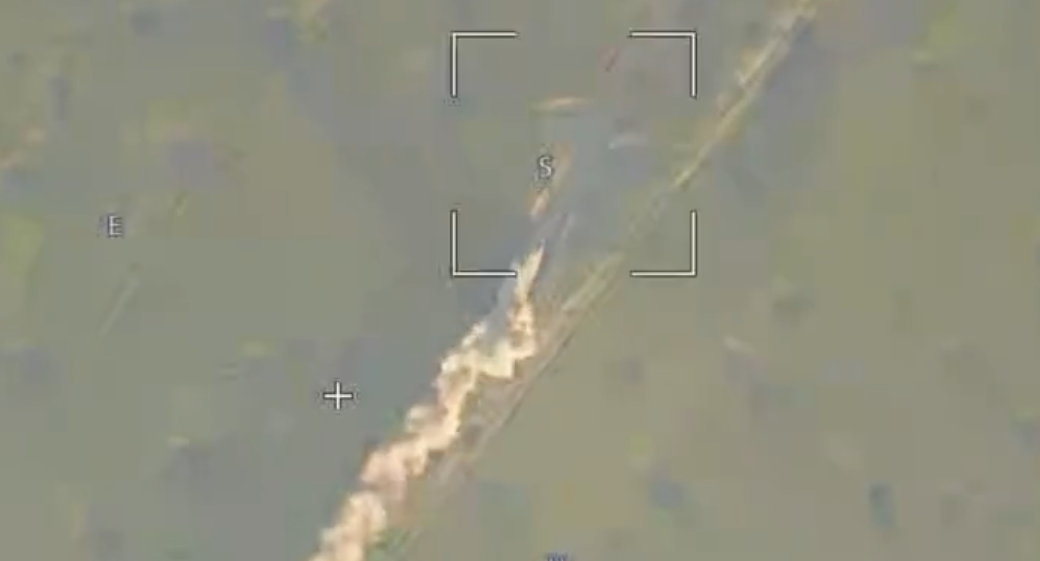
It’s “hard to really say” what happened to the vehicle, retired Army Col. Brad Duplessis told The War Zone Tuesday.
“It is evident that the Russians were using a longer-duration UAV to detect and cue the loitering munition,” said Duplessis, who oversaw live fire training for Strykers at the National Training Center at Fort Irwin, California. “It is impossible to assess any damage to the vehicle or its occupants because the video cuts immediately after. My conjecture would be that the [Russian Armed Forces] likely did not achieve the effects they desired but still valuable to broadcast in the information space to show a strike on U.S. provided equipment.”
Another armor expert, who spoke on condition of anonymity to discuss ongoing operations, said the vehicle was probably destroyed.
“It likely was a catastrophic attack based on the explosion size,” the expert said. “With no [cope cage] that direct explosion’s impact on the side has a high probability of lethality to the crew and dismounts.”
As of 1:40 p.m. Eastern time Tuesday, the Oryx open source tracking group had yet to list any Strykers. Oryx – which has been tabulating damaged and destroyed equipment on both sides – only counts equipment for which it has visual confirmation. So it could be possible Ukraine may have previously lost one or more of the 189 Strykers promised so far by the U.S.
The video shows one of Stryker’s main attributes – speed.
Powered by a six-cylinder, 350-hp motor, the eight-wheeled, 23-ton Stryker can reach a top speed around 60 mph, which is very fast for an armored vehicle. The Stryker in the video appears to be moving at a pretty good clip.
“Strange to see one by itself driving in the bright daylight across an open battlefield littered with artillery craters,” the armor expert told us. “The Stryker is incredibly fast – able to reach over 60 mph – so I assume they were hoping its speed would be the protecting factor against artillery trying to zero on it or outrun a lethal UAS.”
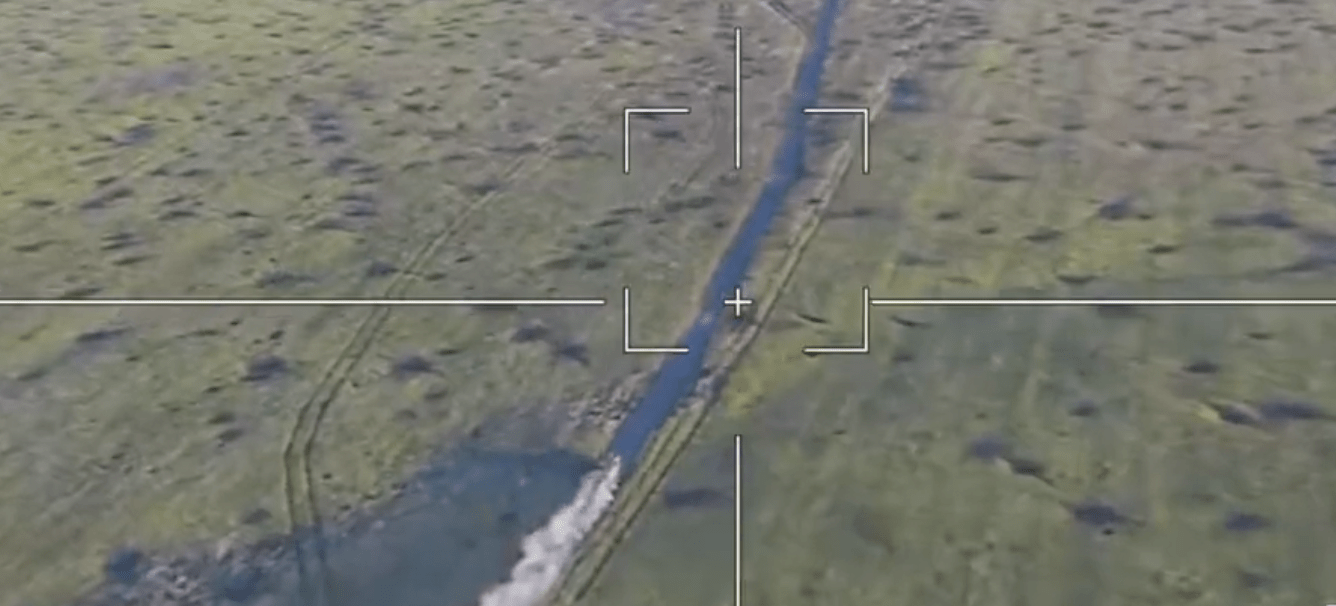
You can read more about what the Styker can bring to the table for Ukraine in our story here.
After observing the video posted Tuesday, Duplessis said it was “difficult to assess” how the vehicle was being deployed.
“However, it should not surprise anyone to see Ukrainian forces employing the mobility of the Stryker as they continue their counteroffensive,” he told us. “The Stryker provides the mobility to rapidly deliver infantry to the fight, with less of a logistical tail than heavier formations, and with adequate protection. This no doubt places pressure on Russian forces to maintain their lines of communication.”
The Strykers, Challengers and Marders first arrived in Ukraine back in March, Defense Minister Oleksii Reznikov announced in a tweet at the time.
In a tweet shared Tuesday by Rob Lee, Senior Fellow at the Foreign Policy Research Institute, the Stryker was geolocated to about 1.5 miles northeast of the town of Robotyne in Zaporizhzhia Oblast. Lee noted that it most likely belonged to the 82nd Airborne Brigade, a unit believed to have been held in reserve for a bigger push in the counteroffensive.
The brigade is one Ukraine’s “more elite Infantry units,” the armor expert told us. “Since they are restricted from doing airborne/air assault missions, many of these higher-tier light infantry units received Strykers, [mine resistant, ambush-protected] MRAPs and [High Mobility Multipurpose Wheeled Vehicles (Humvees)] HMMWV.”
“Arguably, the combination of highly mobile NATO-standard infantry fighting vehicles supported by these extremely capable tanks [Challengers], will make the 82nd a force tailored to advance quickly to seize ground,” the Kyiv Post wrote in May. “On paper, the 82nd looks very much like a formation task-organized to drive through a breach in defensive lines made by other forces.”
That we are finally seeing Stryker being used near Robotyne could be an indication that Ukraine is trying to seize on an opportunity to punch through Russian defenses that have been breached.
We don’t know the status of the Stryker, how many other vehicles and troops were with it, or exactly where it was headed. But the location, if accurate, would put it about 17 miles north of Tokmak, a key city in Ukraine’s plans to push south through Zaporizhzhia Oblast to Crimea.
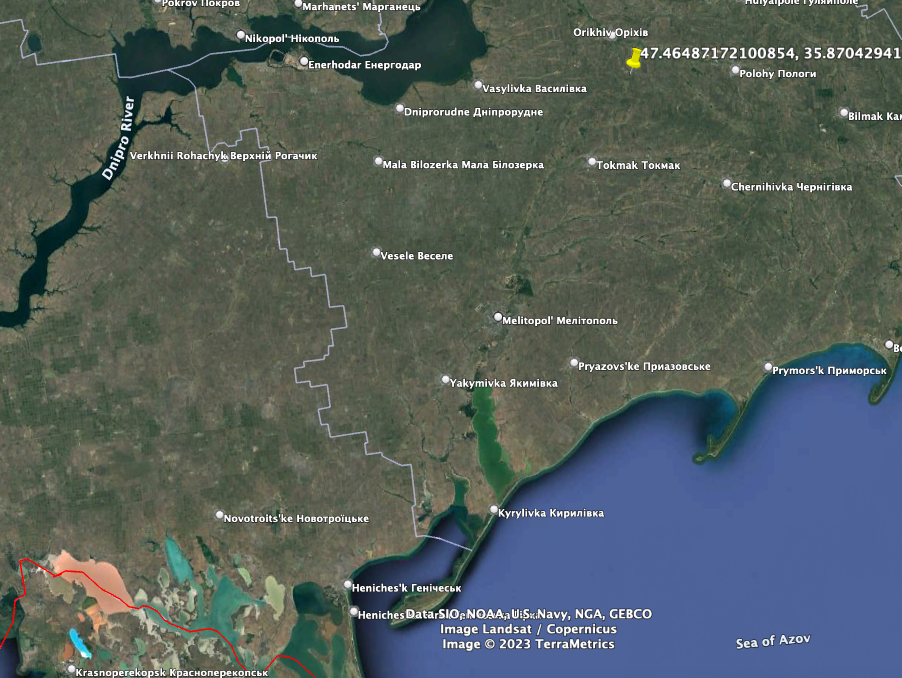
Given the fog of war, so much is still unknown about this incident. But clearly, a Stryker’s appearance on the battlefield is significant.
Contact the author: howard@thewarzone.com
